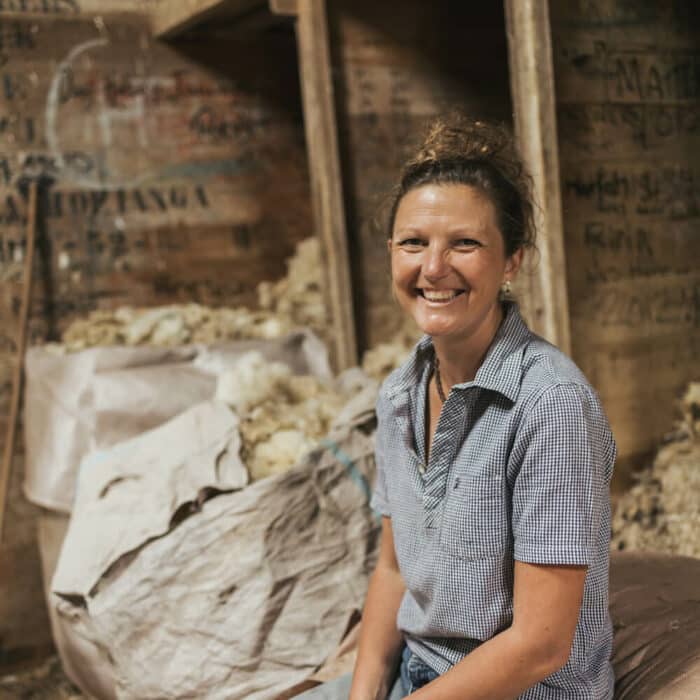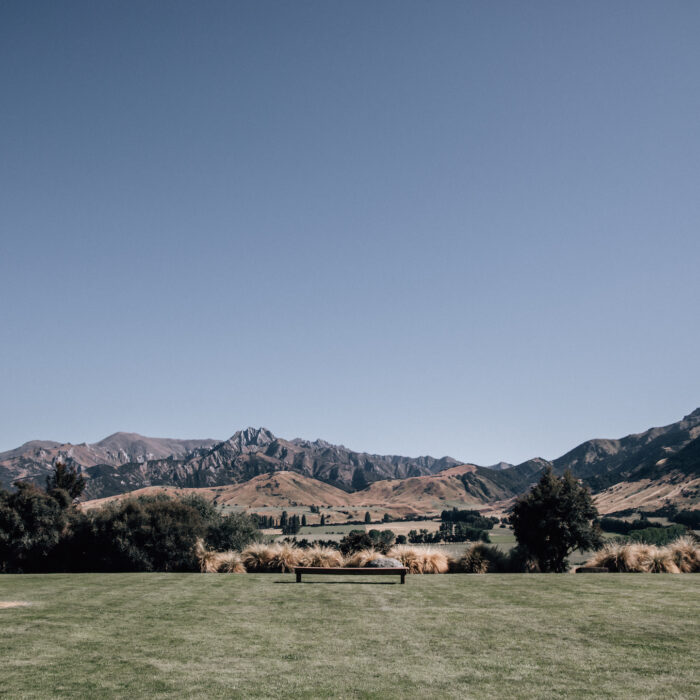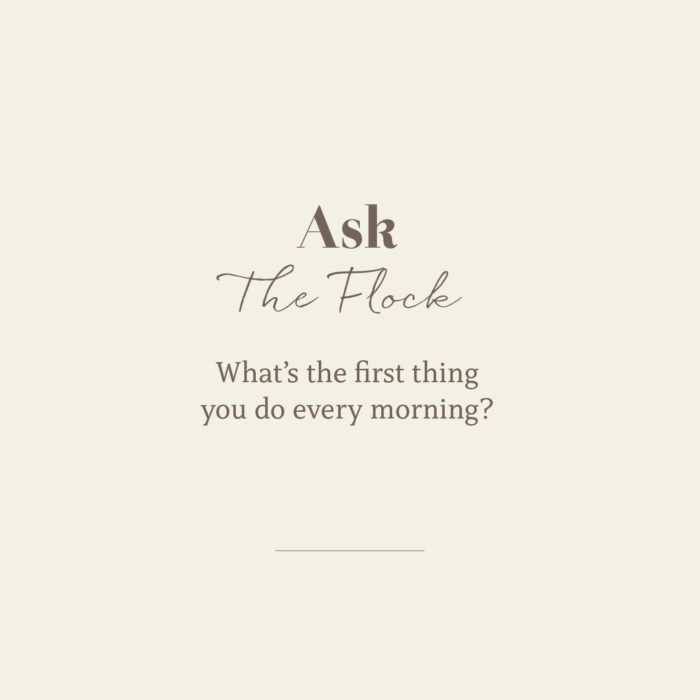08 January 2023
More time with the kids, freedom, fewer interruptions, loneliness – what it’s really like working from home
Writer: GEORGIA MERTON
Photographers: VIVIAN GEHRMANN (BECKY NICHOLSON); TESS CHARLES (MICHAELA GOWER); FRANCINE BOER (EMILY WALKER)
During the first quarter of 2020, people were flung from their regular workspaces into home offices all around the world. For some women, though, this style of working was already a necessity – or a welcome change. Becky Nicholson, Emily Walker and Michaela Gower share their unique versions of entwining work and home life.

Becky Nicholson
Becky began working from home long before it was the done thing. Seven and a half years ago, she was working forty-five-hour weeks in a recruitment role in Hamilton, commuting from Te Awamutu. With her twin boys just six months old, it simply couldn’t last.
“It just wasn’t working,” says Becky, now 38 and a well-established baby sleep consultant. “I would drive half an hour to drop the boys off at day care, then sit in an office, where I was the sole occupant. I would do an eight-and-a-half-hour day, then pick the boys up and drive home.”
Becky’s husband Ken is an agricultural mechanic, so, as she puts it, October was the worst time of year to have babies. “Everyone starts cutting silage and they don’t stop because you’ve got new-borns,” she says, laughing. Her accent gives away her English roots. Becky has been in Aotearoa New Zealand for eleven years now, and with Ken being from the UK as well, they don’t have any family support here. So, with the pair of them both putting in long hours – too many to comfortably maintain – it was time to find a better balance.

Becky didn’t just shift work locations. With lifestyle and time with her boys in mind, she underwent an entire career overhaul. Having followed Emma Purdue from Baby Sleep Consultants on social media since her boys were born, she began her own journey as a consultant. “I’d done my degree in psychology with a major in child development,” she explains. “My boys slept really well from the beginning and I’d put in a lot of hard work – I’m a horrible person with no sleep.” The career move made sense.
“Emma’s sister, who was the Waikato consultant, was taking a step back so I just kind of stepped in and gradually started doing more and more as it got busier,” says Becky. Though she’d done her due diligence and believed in what she was doing, she was still taking a leap of faith. “My mum thought I was mad leaving a secure full-time job for doing ‘voodoo’!” she says. “It was something that no one had really heard of.”

Fortunately, the leap paid off, which for Becky meant a flexible work schedule and plenty of time with her sons. It has also meant time to feed the animals and look after the garden. These days they’re based on a two hectare lifestyle block in Waerenga. With the boys, now eight, at home with Becky during their younger years, her setup has also offered a chance to trial-and-error her way to a system that suits their family best.
Becky’s work consists mostly of consultations over Zoom or on the phone, which typically take about an hour. “I get a lot of the UK consults, and because I’ve got twins I get a lot of those consults, too, which I quite like,” she says. Occasionally, she’ll head out to peoples’ homes for naptime or evening consults, and sometimes a full overnight stay, where she’s out from 6pm until 6am. “We put the baby or the toddler down to bed, and whenever they’re up in the night, I’m there helping parents put them back to sleep again,” she explains. Mostly, though, her work consists of shorter consultations that she can manoeuvre around her life as a mum.

Part of the winning recipe is making sure she has her own office – which was one of the first things Becky did when they moved into their current home. “If the kids have an issue, they go and ask Dad. They’re quite good with that, because they’ve grown up with it; if I’m on a call, they won’t be asking me questions,” she says. It sounds ideal, but Becky is quick to assure that they’ve certainly had their moments. “Once when they were about two and a half, I was on a ten-minute call,” she remembers, her face splitting into a grin. “They were set up with a snack and the TV. I came back and found them doing snow angels in five kilograms of flour on the floor!”
Becky’s day-to-day couldn’t get much more different from her previous office job. “I can start at 9am just after the boys have gone to school, then I finish at about 2.50pm. We live five minutes from school,” she says. This means she can do after-school activities, and if there’s rugby or something else, she’ll just block out her calendar and won’t schedule work.


Becky explains that one of the most important factors in the success of her work-from-home life is keeping boundaries strong. “My email notifications turn off at 3pm, and then they go back on at 7.30pm when the boys go to bed, when I can do evening consults until 9pm, and then they go off again,” she says. “I try to keep that as home time and ‘Mum’ time, not work time, and keep those boundaries pretty strict. Sometimes I don’t get it right, but most of the time it works well.”

One of the biggest challenges for Becky, and one faced in different forms by women everywhere, is the pressure to do everything. To work, to be an attentive mother and a present partner, to have the washing done and keep the kitchen stocked. As an enthusiastic advocate for sustainable living and minimising waste, for Becky there’s keeping the garden alive, the animals fed and the compost turned, too.
“As women, we just want to please and we just want to prove that we can do it. And it’s almost like there is something to prove. You want to be the best and you want to do a good job, but you can’t do it all because eventually something’s got to give,” Becky reflects. She says that while many people shift to working from home to get better balance and more family time, they end up still doing the same hours, but at really antisocial times. “It’s because they’re trying to do the washing up, have a spotless house, get the kids their five-, six-, seven-plus a day,” she says, “There’s no limit and not always someone saying, ‘Stop, you don’t need to give all of yourself.’ And there’s no template for that with working from home.”
For Becky, as for many women living rurally, hiring an office space outside the house to provide that mental shift is simply not an option, because of the travel-time involved. So, as far as avoiding burnout goes, she points to the importance of pausing to reflect. “It can be good to write your values down and assess them every six months, and ask yourself, ‘Has this worked well or has it been stressful, and why?’ You’ve got to constantly review, because things are always changing,” she says. “If it isn’t working, review it before it gets too bad rather than collapsing under the pressure of everything.”

Becky believes it’s important to educate partners, too, to manage the balance between expectations and a shifting reality. “It’s reminding them, ‘I’m at home but I'm not available, I’m working. And I can’t do everything,’” she says. And finally, she tries to remember to keep a wary eye on the distortions of social media. Though it can help with the sense of isolation when working alone, she says it’s important to remember what it actually is.
“You just see snippets of someone’s life, which you’ve deemed to be perfect. It’s easy to use social media as a replacement for talking to people. But it’s just an illusion,” Becky says. It may help for a quick lesson on Instagram in how to identify a sick sheep, but it’s no replacement for genuine connection. That, she finds in real life; with her boys, her partner, and her community.


Michaela Gower
Michaela, 20, has just finished her first year of a Bachelor of Communications through Massey University, with a major in journalism and minor in communication studies. Her study breaks consist of being picked up by her boyfriend Nick and being whisked off to help with the mustering on the Pōrangahau farm they live on and where Nick works as a shepherd. This lifestyle suits Michaela just fine. Over the summer break, she’s doing an internship with the Hawke’s Bay App, a regionally focused mobile news and information service.
“My days are pretty busy,” says Michaela, who started her degree in Wellington before the pandemic moved everything online in 2021. “I came back to Pōrangahau and moved in with my boyfriend, and when the lockdown lifted I just didn’t really leave! I didn’t love Wellington – it was a bit too much city for me,” she explains. Having grown up on a farm in Māhia, Michaela feels most at home living in the country, with space to roam, dogs at her side and a close-knit community on hand.
“Nick’s away during the day so I’ve got the time to focus on my studies. I get up, have breakfast and then I’m in the office by 8.30am and study until 3–3.30pm – in busy times with assignments, maybe a bit later,” she says. “It’s great, there are no interruptions, no friends to gossip with or anything like that.” Keeping her company is her one-year-old black lab, Becky – her little mate who doesn’t leave her side

For the rest of the day, Michaela will muck-in on the farm, mustering or helping out in the yards wherever they need her. “I raised all the pet lambs for them this year, which was quite funny!” she laughs. “It got me out of my office – I’d take the pup for a walk and feed the lambs. I’m so focused on study, so it’s good to have a distinction between that and doing something else.”
It’s not just the farm keeping her busy, either. Michaela works multiple jobs on the side of her studies, and says she has the tight rural community to thank for making this an easy possibility. She gardens for a local lady for a couple of days a week, babysits where she’s needed, and works at Pure Sport and Leisure in Waipukurau twice a week, too. “It’s so flexible, I can find plenty of work. I found that I applied for so many jobs in Wellington but of course there are so many students and everyone’s applying for them,” she says. “I just pick up work where I can around here, and Pōrangahau is such a lovely community. I got my gardening job because Nick’s boss’s wife recommended me.”



As far as grades go, Michaela says she did find that when she first started studying remotely, they dropped a bit. “But I figured out that it was the human connection. Now I have a group chat with a couple of girls from my course – one’s from Hastings and another is from Tauranga – and we’re going through the same stresses and struggles,” she says. “It’s nice having someone to talk to who understands. We can have a wee moan or ask for help, and that’s a big thing.”
Michaela’s in-the-flesh community has been a massive source of support and wellbeing, too. “They get out and do all these things,” she says. “The local rugby team are like the All Blacks,” she says of the way the community rallies around the team. “Everyone goes to the games and back to the clubroom afterwards for a few drinks. Everyone’s so friendly.” It helps that Nick plays for the Pōrangahau rugby team, and she says that’s been a great way to get out socialising and meet people.
“I also have a friend, Izzi, who’s a shepherd around here and she comes up for dinner once a week or we go to hers. Then there’s tennis on Monday or Tuesday nights, and I didn’t know anyone on the team so it’s been good getting to know everyone. There was netball, and I’d never played that before,” Michaela remarks.


Michaela has always wanted to be a journalist. “When I was in Year 5 or 6 we used to do current affairs reports for homework. I think it must have been paraphrasing a news article from the paper,” she says. “I was hooked, I loved sharing the articles I’d written. So I started working towards that goal and took classes at school with a focus on writing, like media studies and history. I’ve always loved writing.”
After doing her brief stint in the city, Michaela now knows herself to be a country girl through and through. “As far as being a student goes, I’ve really landed on my feet,” she says. “We get meat from the farm, which is huge, and veggies from the veggie garden. On Valentine’s Day I didn’t get roses or a teddy bear, I got a chilly bin of meat!”
Staying in Pōrangahau has meant Michaela can stay connected to rural life – which is exactly what she wants to be reporting on as a journalist. “I’d ideally love to do rural reporting, and be able to go to town for stories but still work from home,” she says. “I just want to shine a positive and progressive light on farming, and tell human stories, as well. That’s what I love.”


Emily Walker
Emily, 29 and a civil engineer turned business consultant, is most certainly a professional woman, but she found that rural living was not really set up to support women in her profession. Her response to this challenge? Setting up her own company, and designing herself a life that gives her the freedom she needs.
Since being together, Emily and her husband Matt, a farm manager, have worked to build a life that accommodates both their careers. At the beginning, Matt was working and living at the top of the Rangitata Gorge, whilst she worked as an engineer in Timaru. “We couldn’t live together, which was quite a challenge,” says Emily. So, four and a half years ago they moved to Tarras, where Matt is the general manager of a business and manages three different farms, and Emily has shifted away from salaried work as a civil engineer to contracting work as a business consultant.
This has given her more flexibility, and her role is a whole lot more varied. “I’ve got quite a complex flexi work structure,” Emily says, explaining that she splits her time between travelling for clients, working at clients’ offices, and at home. And the nature of her work? Hugely diverse. “I’m doing a lot of problem definition and option development, but I also support clients through organisational restructure and change, developing strategic work programmes, transformational change in organisations, and then more recently I’ve been working with WAI Wānaka, a local community-based water organisation,” she says.

When she’s travelling to clients’ spaces, it’s generally to hold facilitator workshops, or work side by side with them on a project. “I choose this work over a corporate job because I really enjoy all the different organisations and their different challenges and opportunities, and having that real variation in work,” she says. “I find that really interesting. So it’s a good fit to be constantly on the move, changing it up, but being physically on the move is quite hard.”
With her main clients in Wānaka and Arrowtown, Emily is not strictly ‘working from home’, and she spends a fair amount of time in the car. Because she doesn’t work where she lives, she says the loneliness factor is real. “It’s quite isolating, to be honest. Because you’ve got such a long commute, you can’t really commit to anything,” she says frankly. “You can’t play sport after work because you don’t know if you’re going to be there to commit to a team, and you don’t necessarily have friends at work because you don’t socialise there. Even for Friday drinks, you've got to drive an hour home. So you’re not necessarily involved in a community and making those social connections.”


For Emily, balance is key, and this lack of community is part of the reason she’s working towards being less of a slave to such long commutes. With a deep interest in wellness, she knows how important it is to make sure all the puzzle pieces are there for a well-rounded life. Another part of this, of course, is having separation from work at the end of the day. “You do have to be quite disciplined not to let it take over your life, because at the end of the day you never get those hours back,” says Emily, whose office at the moment is in a cupboard to the side of the kitchen. What matters, though, is that she can close the door when she’s done and forget about it.
Fitness has always been a big focus in Emily’s life, too. “We’ve set up a home gym so we don’t have to travel half an hour to the closest one, and I was training for the Challenge Wānaka Half Triathlon last year, before it got cancelled because of Covid,” she says. “It’s a tricky balance but the wellness thing is a constant for everyone, isn’t it? You think you have it under control and then something comes around the corner and you don’t.”


n 2018 Emily did life coaching training, and was pursuing that for a while as a potential opportunity. “With my commuting time having doubled, it’s gone on the backburner,” she says. “But now that I’ve got my own business that’s probably something I’ll look to weave into my work a bit more with organisations, rather than doing it completely separate.” As she explains, being able to upskill her clients and support them to do more for themselves is just another tool, and a valuable one for her as a consultant.
Like Becky, Emily reflects on the challenges unique to professional women working in the regions. “Quite often it’s the female that’s working from home because typically the male is on the farm. And I guess something that I found hard over time is that every time Matt has changed jobs, I’ve had to uproot my life and career to move with him, which you do because that’s just how it works, but it is quite a challenge,” she says.

The global shift towards remote working offers another option for women in this position. “I think it’s awesome for people like myself, because it gives you the opportunity to continue your career and make good strides and participate in the workforce to the level that you would like to,” she says. That, whilst the lack of accessibility to local childcare means these opportunities are not as readily available to her rural friends with children, is a good start.
Though it’s not without its challenges, and she’s still gunning for more flexibility, Emily has the evolution of remote working to thank for being able to work and live the way she does. “I really enjoy what I do,” she says, smiling. But that doesn’t stop her having dreams for the future. “Ultimately I’d like to be working in the agri-business space and strategy development, and doing more project-based work so contracting in my own right,” she says. “Also, exploring more about my whakapapa and Māori [Ngāti Hauiti] heritage, and weaving that into my mahi in some way.”
Glossary. Mahi, work. Whakapapa, genealogy, lineage, descent.



This story is part of THREAD, a year-long project by Shepherdess made possible thanks to the Public Interest Journalism Fund through NZ On Air.
If you enjoyed this story, please share with someone else.
Get your hands on a copy of Shepherdess.
Related Stories
Weaving Together Four Families
On their wedding day, Amelia and Matamoana Nuku were able to honour their families – and their traditions – in a way that celebrated love.
The Old Way Sweet Scrolls Recipe
Super easy, soft and delicious, these sweet scrolls can be rolled up with whatever flavour combinations you fancy!
Ask The Flock
What's the first thing you do every morning? Read the responses from our community.



